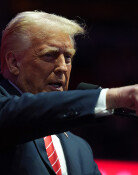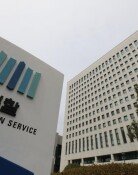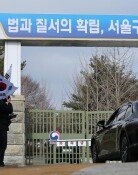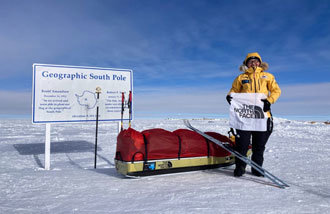Reshuffle maneuver causes internal disobedience in Prosecutors’ Office
Reshuffle maneuver causes internal disobedience in Prosecutors’ Office
Posted July. 23, 2024 07:46,
Updated July. 23, 2024 07:46
On May 13 this year, the Seoul Central District Prosecutors' Office replaced the entire line of command in the investigation of First Lady Kim Keon Hee. Shortly afterward, an official from one of the prosecutor's offices criticized this action as a violation of the 'Prosecutor's Personnel Policy.' According to these policies, prosecutors must first be evaluated, and then personnel decisions should be made based on the results to ensure predictability and fairness. However, the Ministry of Justice recently announced that it would conduct the first half of the evaluation in early August after the personnel decisions for the prosecutors had already been made. This is two months later than usual and is a clear violation of the policy by changing orders.
The ‘May 13 Prosecutors' Senior Executive Reshuffle’ was notable for the clash between the minister of justice and the prosecutor general. When Justice Minister Park Sung-jae tried to appoint Lee Chang-soo as Chief Prosecutor of the Seoul Central District Prosecutors’ Office, Prosecutor General Lee One-seok opposed the move, saying it would “undermine the impartiality of the investigation.” In Lee One-seok's view, as the previous leadership of the Seoul Central District Prosecutors’ Office had tried to force a face-to-face interview with First Lady Kim, who is under investigation for allegedly manipulating Deutsche Motors' stock price and accepting a Dior bag, the leadership reshuffle was made to prevent the investigation efforts. As is well known, a similar reshuffle had been planned before the general election, but it was thwarted by Prosecutor General Lee's opposition, going to the extreme of saying he would submit his resignation if it happened.
For this reason, the prosecutor general reportedly insisted on not approving the minister's senior prosecutorial reshuffle plan of May 13, including the appointment of Lee Chang-soo. He reportedly refused to sign the document, stating that if the ministry brought it to the Supreme Prosecutors' Office, he would write a record detailing his reasons for disagreement and put it on record. The Prosecutors’ Office Act states that “the minister shall consider the opinion of the prosecutor general regarding the assignment of prosecutors to positions.” If the prosecutor general’s disagreement can be regarded as an opinion, it would not be a violation of the law. However, the personnel reshuffling can only be seen as a 'maneuver' that is very different from the purpose of the law.
Two months later, the new leadership of the Seoul Central District Prosecutors' Office investigated First Lady Kim at a “third location,” a presidential security service building outside the prosecutor's office, without informing Prosecutor General Lee in advance of where, when, or how the investigation would take place. The prosecutor general is in charge of prosecutorial investigations and has command and supervisory authority over all prosecutors. This is an unprecedented situation in a prosecutors’ office that still has a hierarchical organizational culture.
Worse still, it wasn't just the chief prosecutor, but also the deputy chief prosecutor, departmental chiefs, and senior prosecutors of the Seoul Central District Prosecutors’ Office who uniformly failed to report the investigation to the prosecutor general and his staff. Despite the prosecutor general's objections, there is no better illustration of why someone needed the reshuffle two months ago.
One legal expert's observation, “It's like watching a fight among themselves, throwing food to the opposition party at a time when they should be fighting an outside force,” is not wrong. The investigative process of the Seoul Central District Prosecutors’ Office, which is almost requiring a special prosecution, reinforces the notion that the first task of prosecutorial reform is personnel management.






